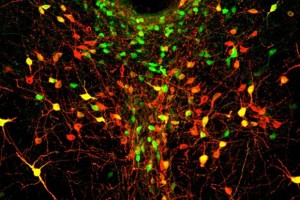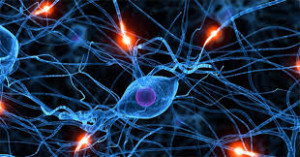Scientists Locate Part of Brain that Houses Loneliness : A Well Thought Out Scream by James Riordan

 What was the old song? “Love makes the world go ’round”. Well, scientists are now finding evidence to back the lyric up. Well, not exactly. It may not be love that makes the world go ’round, but it is certain that emotions play a heavy part in every aspect of our society. Contact with other humans isn’t just psycho-logically beneficial: it also provides us with evolutionary advantages. Historically, it was easier to find food and shelter as a group than it was alone, and so an instinct to seek comfort in groups has been deeply ingrained. When we’re deprived of this contact, we often become lonely, distressed and miserable.
What was the old song? “Love makes the world go ’round”. Well, scientists are now finding evidence to back the lyric up. Well, not exactly. It may not be love that makes the world go ’round, but it is certain that emotions play a heavy part in every aspect of our society. Contact with other humans isn’t just psycho-logically beneficial: it also provides us with evolutionary advantages. Historically, it was easier to find food and shelter as a group than it was alone, and so an instinct to seek comfort in groups has been deeply ingrained. When we’re deprived of this contact, we often become lonely, distressed and miserable.
Now, a team of MIT neuroscientists has identified the region of the brain that represents these feelings of loneliness — the dorsal raphe nucleus (DRN). The DRN, near the back of the brain, hosts a cluster of cells that the team say is responsible for generating increased sociability after periods of isolation.
“To our knowledge, this is the first time anyone has pinned down a loneliness-like state to a cellular substrate,” said Kay Tye, one of the senior authors of the study. “Now we have a starting point for really starting to study this.”
 The research, which has only been conducted on mice so far, found that animals housed together have inactive DRN neurons. During isolation, however, the neurons become sensitized to social contact, and when the mice were reunited, neural activity surged. The mice also became far more sociable than those who had not been isolated.
The research, which has only been conducted on mice so far, found that animals housed together have inactive DRN neurons. During isolation, however, the neurons become sensitized to social contact, and when the mice were reunited, neural activity surged. The mice also became far more sociable than those who had not been isolated.
Researchers also found that animals with a higher rank in the social hierarchy were more responsive to changes — suggesting they may be “more susceptible to loneliness.”
Historians have often cited the emotional damages done to dictators like Hitler when they were children as one of the causes that drove such men to obtain and abuse power. For some, power is the drug that fills the hole left by emotional abuse. Or at least so it seems at the time. Doctors now prescribe drugs designed to keep us happy. Perhaps someday soon, they’ll be able to switch the loneliness brain neuron from “sad and empty” to “happy and fulfilled”. Maybe, but I doubt it.





No Comment